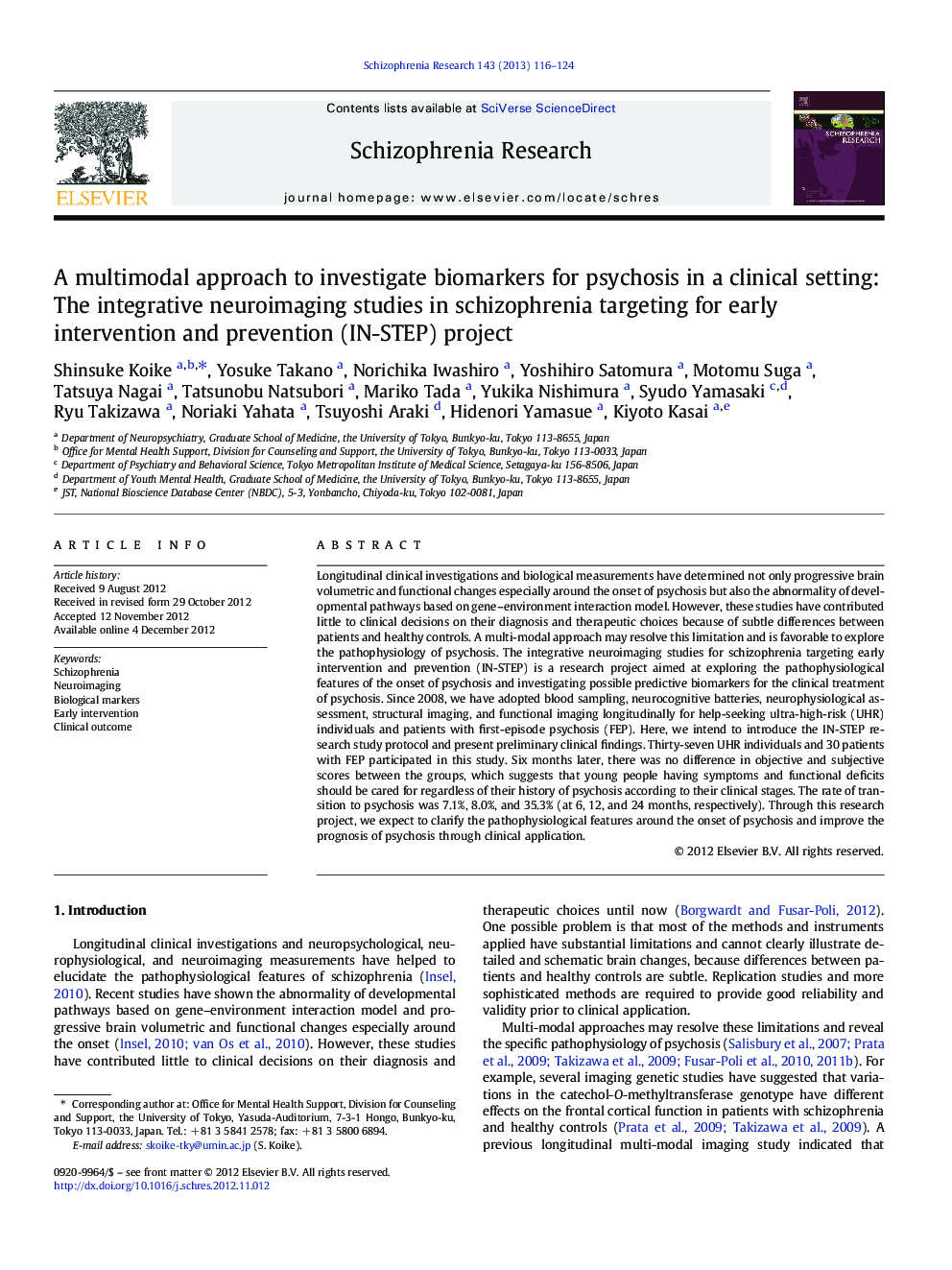| Article ID | Journal | Published Year | Pages | File Type |
|---|---|---|---|---|
| 10307471 | Schizophrenia Research | 2013 | 9 Pages |
Abstract
Longitudinal clinical investigations and biological measurements have determined not only progressive brain volumetric and functional changes especially around the onset of psychosis but also the abnormality of developmental pathways based on gene-environment interaction model. However, these studies have contributed little to clinical decisions on their diagnosis and therapeutic choices because of subtle differences between patients and healthy controls. A multi-modal approach may resolve this limitation and is favorable to explore the pathophysiology of psychosis. The integrative neuroimaging studies for schizophrenia targeting early intervention and prevention (IN-STEP) is a research project aimed at exploring the pathophysiological features of the onset of psychosis and investigating possible predictive biomarkers for the clinical treatment of psychosis. Since 2008, we have adopted blood sampling, neurocognitive batteries, neurophysiological assessment, structural imaging, and functional imaging longitudinally for help-seeking ultra-high-risk (UHR) individuals and patients with first-episode psychosis (FEP). Here, we intend to introduce the IN-STEP research study protocol and present preliminary clinical findings. Thirty-seven UHR individuals and 30 patients with FEP participated in this study. Six months later, there was no difference in objective and subjective scores between the groups, which suggests that young people having symptoms and functional deficits should be cared for regardless of their history of psychosis according to their clinical stages. The rate of transition to psychosis was 7.1%, 8.0%, and 35.3% (at 6, 12, and 24Â months, respectively). Through this research project, we expect to clarify the pathophysiological features around the onset of psychosis and improve the prognosis of psychosis through clinical application.
Related Topics
Life Sciences
Neuroscience
Behavioral Neuroscience
Authors
Shinsuke Koike, Yosuke Takano, Norichika Iwashiro, Yoshihiro Satomura, Motomu Suga, Tatsuya Nagai, Tatsunobu Natsubori, Mariko Tada, Yukika Nishimura, Syudo Yamasaki, Ryu Takizawa, Noriaki Yahata, Tsuyoshi Araki, Hidenori Yamasue, Kiyoto Kasai,
